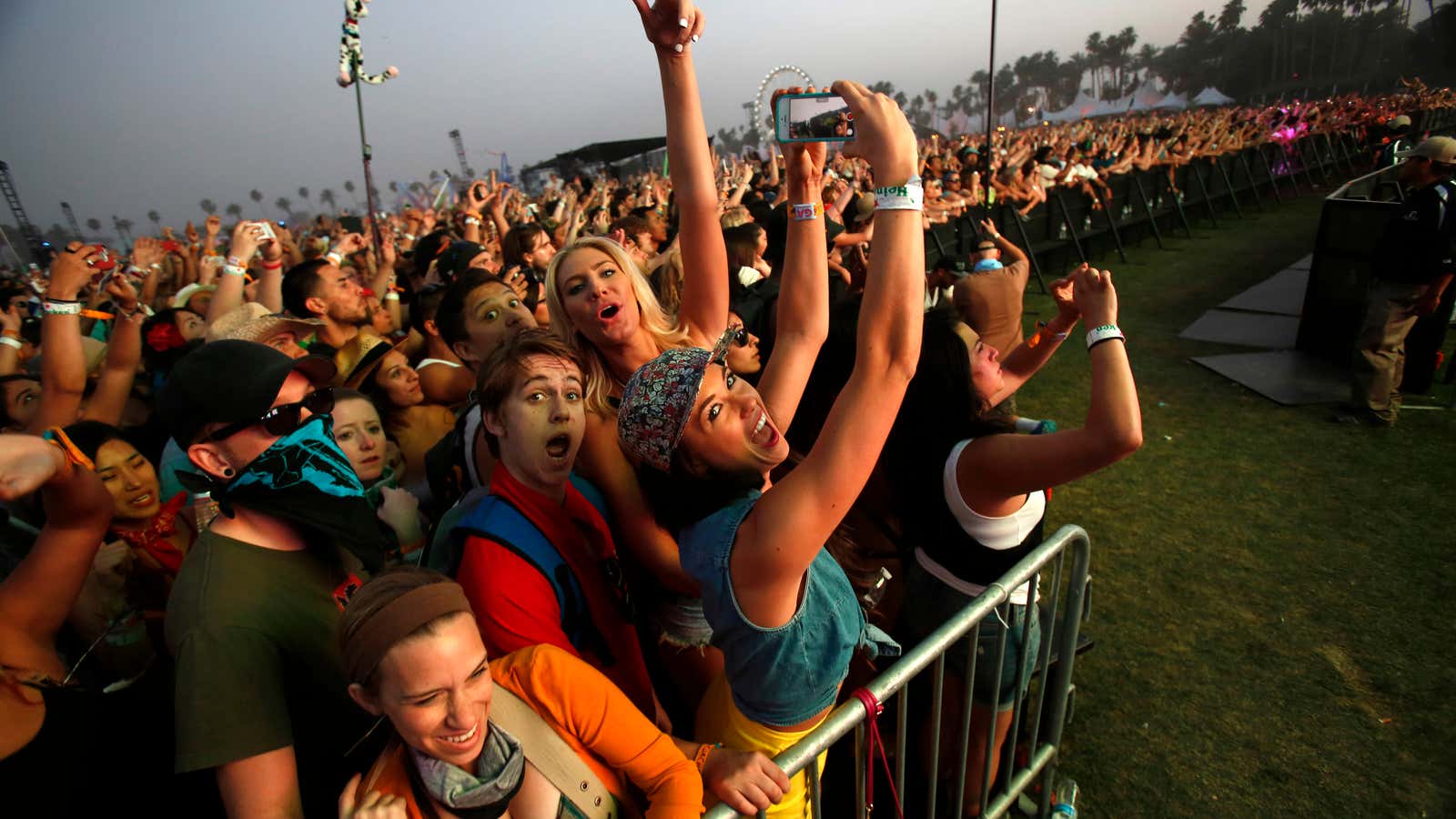People are streaming music more than ever—which pays peanuts to songwriters (paywall)—and the purchase of albums has become passé. And then there’s music piracy, which won’t go away; even Kanye West can’t stop the tide. But amid these disruptions to recorded music, live concerts are more popular than ever.
Live Nation Entertainment, the world’s biggest concert-organizing company, announced five consecutive years of record revenue when it released its 2015 results yesterday (Feb. 25). Live Nation’s $7.6 billion of revenue is up 11% from the previous year; its on-site advertising grew 17%; its concert and festival attendance saw a boost of 8%; Ticketmaster, the ticket-selling division it acquired six years ago, reported 12% growth in global gross transaction value.
In remarks to shareholders, one particular adjective was proudly uttered by CEO Michael Rapino over and over: “Record.”
Factors driving the explosion include the rise of mobile-ticket sales (which make it easier for fans to snag spots at events) and a surge in global entertainment event growth (which is occurring as musicians dig into emerging markets for new profit).
There’s something else: unlike recorded songs and albums, concerts provide an undiluted connection to music that fans can’t find digitally, no matter how hard online services try to recreate it. As Live Nation said:
Live is a truly unique entertainment form—it cannot be duplicated. It is elevated, not threatened by technology and is borderless. Fans around the world can now discover, follow, share and embrace artists, creating greater demand for live shows.
This, combined with an ongoing shift of consumer spending towards experiences, is helping drive the structural increase in demand for concerts globally.
As the world moves toward digital records and de-personalized music streaming, it seems fans are starting to miss the emotional connections with their favorite artists, and they’re picking up those lost relationships with live events.
Farewell to the album; hello, Coachella.
